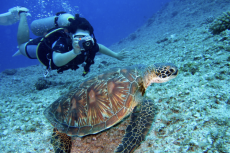Justice for All Sentient Beings?
What counts as sentient? We can't know. I therefore do not take anything for granted but acknowledge that even the smallest and seemingly insignificant creature just might be capable of some degree of sentience.
Most of us will agree that we should not be cruel to animals but treat them nicely. We have animal welfare laws in place, for example, and pet owners will testify that their animals—often considered members of the family—have personalities and feelings. It is also widely accepted that a number of wild animals possess considerable intelligence and social skills, such as primates, marine animals, and some birds, to name a few.
Some animals even have certain rights or protections. Neglecting or mistreating pets or livestock is, in most places, a crime and animal welfare laws dictate that livestock should be provided with tolerable living conditions and enough stimuli, and they should not suffer any unnecessary pain.
But which animals do such rights and duty of care extend to? Just the familiar species, such as those we keep as pets, raise as livestock, or think are cute?
How about the sentient beings we encounter in the ocean?
Our appreciation of sharks has come a long way since the days when they were considered fearsome monsters and single-minded eating machines to our current understanding of them today as quite intelligent and sentient beings, with social interactions and structure. But does that mean they should also have legal rights?
The prominent philosopher and ethicist Martha Nussbaum thinks so.
Her “Capabilities Approach” is a philosophical framework that aims to provide a more comprehensive and human-centred perspective for evaluating well-being and social justice.
In her recent book, Justice for Animals (which I aim to review in the future), she argues for an expansion of her influential approach, to encompass all sentient beings. She makes a good case albeit one fraught with challenges, including some cultural and legal in nature.
It also made me speculate what counts as “sentient.” As we have frequently covered in this publication, even smaller fish have cognitive skills once thought way beyond them, and feelings too. Crustaceans are known to feel pain, fear and stress, and are likely to also have cognitive skills that we just have not documented yet.
But what about even smaller critters? What, if anything, do they think and feel? There simply is no agreed to minimum size of brain considered capable of supporting sentience, so we cannot rule it out.
The philosophical, ethical and legal implications are enough to make my brain hurt. That being said, it is quite clear that sentient beings matter, and we must do better by them.
When I dive, I therefore do not take anything for granted but acknowledge that even the smallest and seemingly insignificant creature just might be capable of some degree of sentience.
This realisation has not only left me more careful and respectful around other life forms, but has also added to the sense of wonder, profound as it already is, that has made diving so fulfilling.




























